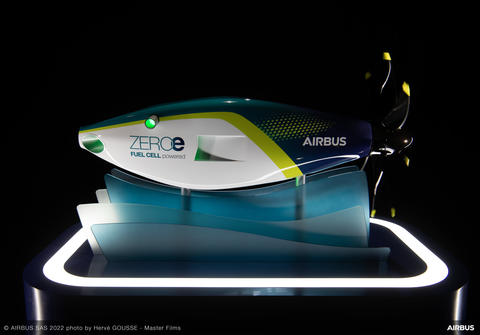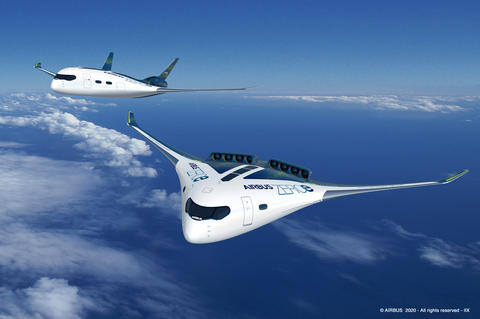Airbus develops fuel cell propulsion
As early as 2020, Airbus presented its concepts for the future of flying under the name ZEROe. Since then, hundreds of engineers have been working on the implementation. Hydrogen from renewable energies is one of the most promising options for powering future aircraft, as no CO2 is emitted during its generation or use.
Innovation locations Hamburg and Ottobrunn
The world market leader is researching two options for this: First, the combustion of hydrogen in a gas turbine, and second, the use of fuel cells to convert hydrogen into electrical energy. These technologies are now being used to develop a new generation of engines and aircraft that no longer burn kerosene. This will not only avoid carbon dioxide emissions in the future, but also nitrogen oxides and condensation strips. The German Airbus locations, above all Hamburg, concentrate, among other things, on the development of fuel cell technologies.
Technology revolution is gaining momentum
Since there are currently no suitable propulsion systems on the market, Airbus announced at the end of 2022 that it would develop its own hydrogen-powered fuel cell engine. If the set technology goals are achieved, aircraft with fuel cell propulsion could be used on numerous routes.
By investing in fuel cell technology, Airbus is gaining options for the architecture of the future ZEROe aircraft. A crucial point is how quickly the performance of the fuel cells can be increased so that an aircraft can take off. In order to speed up this process, Airbus founded the Aerostack joint venture with the automotive supplier ElringKlinger. Several fuel cell stacks were recently combined there to form a more powerful module.

Advance into the megawatt class
The next tests are already taking place near Munich. In the system house for electric flying in Ottobrunn, six of these systems are interconnected in order to advance into the megawatt class. It is planned that one engine will have an output of 2.5 megawatts.
In order for climate-neutral flying to become a reality, numerous technologies must be developed in parallel and made ready for the market. Airbus as the world market leader and hundreds of other companies in the supply chain in Germany and Europe have been working flat out on the future of flying for years. They all have one goal in common: to connect the people and regions of the world with each other in the long term.
Status: May 2023
